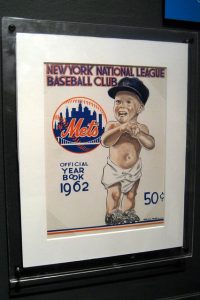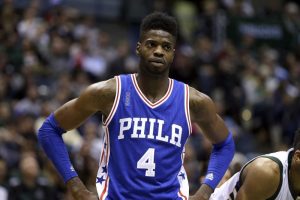Jabari Parker does not lose often. During his four years of high school, it only happened fifteen times, nine of which came during his freshman year; otherwise, Parker accumulated 118 wins and four state championships with Chicago-based Simeon High School, earning him the opportunity to attend (on athletic scholarship) any university in the country.
Parker chose to play at Duke, as many high school stars do, and wasted no time making an impact. Parker averaged 19.1 points per game and 8.7 rebounds per game this season, leading Duke during a regular season where they never endured a losing streak.
During the past two weeks, however, things have certainly been less rosy. The Blue Devils lost in the ACC championship game to Virginia and many critics pointed to Parker’s seven for 24 shooting performance as the primary reason why. If he was truly amongst the greats in college hoops this season, this was not the time to start playing poorly.
Next up was the perfect stage to silence his critics: the NCAA tournament. Duke, a three seed, occupied the weakest region in the bracket, setting the scene for a deep run and a likely Jabari Parker coming-out party.
Then Mercer happened. The 14-seeded Bears, with zero tournament wins in program history, shocked the Blue Devils, winning by ten points in an upset that made waves around the country. Once again, at the center of the criticism, was Parker. The freshman managed only fourteen points on four of 14 shooting, playing arguably the worst game of his college career.
For Parker, his worst game will probably also be his last in a Duke uniform. As a likely top-five pick in next year’s NBA draft, most experts expect him to bolt for the pros. But should he?
In my opinion, the answer is no. I say this not because Parker isn’t ready for the pros, because he most certainly is. Physically, mentally, and skill-wise, Parker is actually one of the most NBA-ready players we’ve seen in the last quarter century. Put him in an NBA game tomorrow and few would doubt his ability to score 20 points for any team.
It is this readiness, I believe, that makes staying an intriguing possibility for Parker. The NBA is not going anywhere (hopefully), and barring any injury, it is highly unlikely that scouts will become disillusioned with his ability if he chooses to stay for a sophomore season. Generally, such disillusionment is reserved for players with a very singular style of play; by staying another year, such a player gives opponents a chance to expose undeveloped skill areas. For anyone who has watched Parker play this season, his game is clearly not one-dimensional. I don’t know about you, but I can’t think of many six-foot-eight, 235-pound forwards who can shoot threes like they’re lay-ups.
If anything, by waiting another year, Parker would increase his draft stock, as he would avoid the already loaded 2014 draft class. Why not let Andrew Wiggins, Marcus Smart, and a host of foreign players, duke it out in 2014, and enter the 2015 draft as the most-experienced and most-dominant player available?
The most typical response is, unfortunately, one that is hard to refute. In the NBA, players make money and in college they do not. Parker, to be frank, is deciding whether he wants to become a millionaire now or next year. Waiting starts sounding like a worse and worse idea when discussed in this manner.
But Jabari Parker is different. In an interview with the Associated Press, Parker opened up about his thought process regarding next season. “If I feel like there are things I can improve upon or things I left, like during the season, then I will probably come back,” he explained.
Though some will disregard such a quote as Parker just being politically correct, compare his rhetoric with that of fellow super-frosh Andrew Wiggins. “I wish I had more time to stay here and do my thing and just be here with the team…” Wiggins said.
For Wiggins, leaving is and has been inevitable. He is a different player from Parker and, if he were to stay, there is a strong chance his draft stock would fall. In fact, some scouts have already expressed disappointment in Wiggins’ play this season, as he has undoubtedly made less of a splash than most expected. This is a situation where the phrase “take the money and run” applies to the greatest degree.
In my view, Parker is the opposite. The combination of his high maturity level, malleable playing style, and the existence of unfinished business at Duke, makes staying for another year a serious possibility. His game is so advanced that another year in college is not likely to expose any weaknesses; if anything, Parker will likely reveal a new aspect of his game. Don’t be surprised in the coming weeks if Mr. Parker spurns a host of NBA suitors and haunts the ACC for one more year. Whatever he chooses, however, prepare for more dazzling displays for one of the best players we’ve seen in a long time.
Photo: Bryan Horowitz/Flickr








The 2014 draft class is shaping up to be roughly average. There is a very high probability that Jabari will be a top 5 pick. Returning to Duke would risk millions of dollars on his first NBA contract, not to mention delay both his first and second contracts, which is incredibly significant given the time value of money.
NBA teams, for the most part, have larger and better coaching, training and player development staffs, so Jabari’s skill set would get better faster in the NBA (he even had to play some center for Duke!).
Experience is a negative in terms of prospect value, as any decent draft model has age as the most significant factor (younger is better).